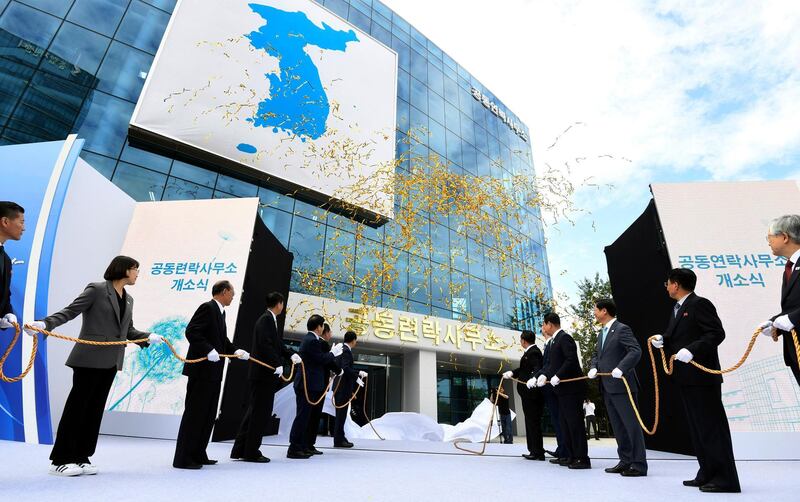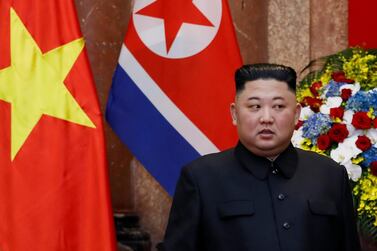North Korea abruptly withdrew its staff from a liaison office with South Korea on Friday, a development that is likely to put a damper on ties between the two countries.
The North Korean action came a week after its vice foreign minister threatened to pull out of nuclear negotiations with the United States, citing a lack of US steps to match the disarmament measures it took last year. Her warning followed a US-North Korea summit in February that collapsed due to disputes over sanctions on the North.
North Korea informed South Korean officials of its decision during a meeting at the liaison office in the North Korean border town of Kaesong, Seoul's Unification Ministry said.
North Korea said it was withdrawing its staff under instructions from unspecified "higher-level authorities," according to the Unification Ministry. It didn't say whether the withdrawal would be temporary or permanent.
South Korea called the North's decision regrettable and urged the North to return its staff to the liaison office soon.
The withdrawal is a major setback for South Korean President Moon Jae-in, who has sought improved relations with North Korea alongside the nuclear negotiations between the North and the US.
Mr Moon's office said presidential national security adviser Chung Eui-yong convened an emergency meeting of the National Security Council to discuss the North Korean withdrawal.
The president said that inter-Korean reconciliation is crucial for achieving progress in nuclear negotiations, but the breakdown of last month's summit between US President Donald Trump and North Korean leader Kim Jong-un has created a difficult environment to push engagement with the North.
North Korean state media have recently demanded that South Korea distance itself from the US and resume joint economic projects that have been held back by the sanctions.
China also said it would look into charges against two Chinese companies sanctioned by the US because they are suspected of helping North Korea evade sanctions.
China upholds all United Nations Security Council sanctions against the North over its nuclear and missile programmes, Foreign Ministry spokesman Geng Shuang said. He said China will deal with any verified transgressors and "launch an investigation according to our domestic laws".
However, Mr Geng said Beijing opposes unilateral sanctions on Chinese companies such as those imposed by the US separate from those of the UN.
The Trump administration last week sanctioned two shipping companies – Dalian Haibo International Freight and Liaoning Danxing International Forwarding – for using deceptive methods to circumvent international and US sanctions.
The sanctions against the Chinese companies were the first targeted actions against Pyongyang since its nuclear negotiations with the US in Hanoi last month ended without agreement.






